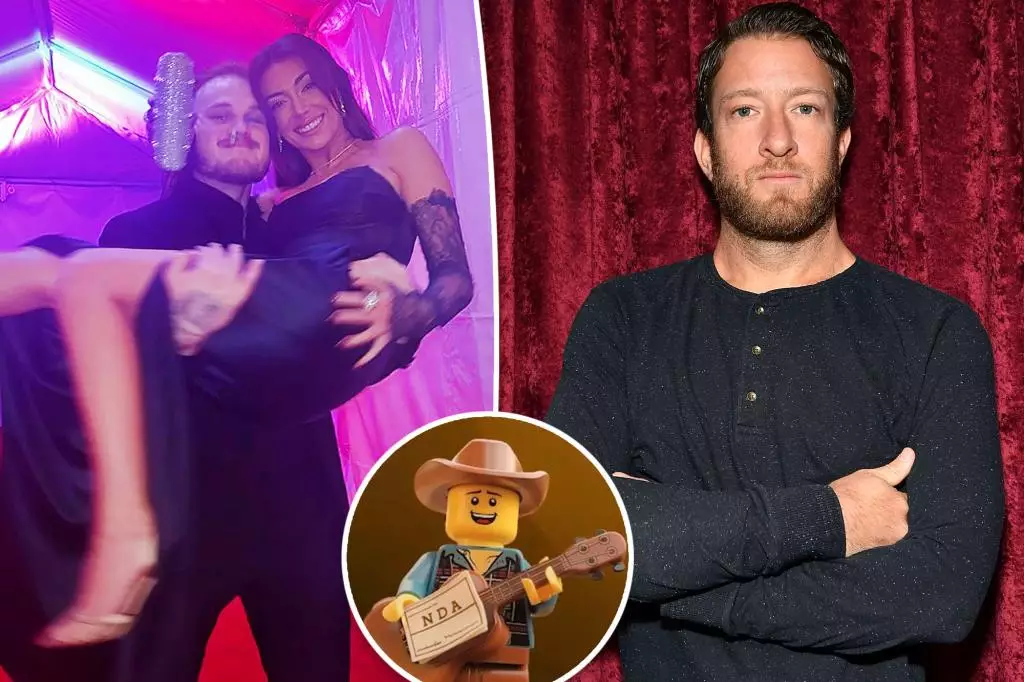In recent times, the music world has seen an intriguing but often distasteful element emerging—diss tracks. These are not new phenomena, but the clash between rock and rap has brought about a new level of intensity. One of the latest examples comes from Dave Portnoy, founder of Barstool Sports, who has released a provoking diss track aimed at country singer Zach Bryan, referred to disparagingly as “Country Diddy.” This article dives into the dynamics of this feud, offering a critical perspective on the culture of diss tracks and the implications of public disputes in entertainment.
The Price of Celebrity Feuds
The recent track by Portnoy is more than mere entertainment; it reflects the damaging nature of celebrity conflicts. In an era where public opinion is molded rapidly through social media, the behavior displayed by both Portnoy and Bryan showcases the extremes to which public figures will go to assert dominance or claim victimhood. Celebrities often flaunt their struggles and expose one another in public forums, effectively broadcasting their personal grievances to millions.
Portnoy’s lyrics make scathing comments on Bryan’s alleged legal woes and personal life, drawing parallels to the ongoing legal issues faced by Sean “Diddy” Combs. This allusion is nothing short of calculated—a reminder to audiences that pop culture figures can be embroiled in serious controversies while also maintaining their fame. The incessant need for attention could lead to the trivialization of serious accusations, employing them as fodder for entertainment rather than substantive conversations.
At the center of this diss track lie the very relationships that make these public disputes so compelling yet chaotic. Portnoy’s track finds roots in Bryan’s past romantic involvements, particularly with Brianna “Chickenfry” LaPaglia. LaPaglia has claimed that Bryan’s attempts to silence her with financial payouts only added to her narrative of emotional abuse. When relationships unravel publicly, it becomes a spectacle that draws in not just those involved but also their respective fanbases, which leads to further conflict.
The repercussions of airing out personal grievances in public are profound. Individuals like LaPaglia find themselves thrust into an arena where they must defend their dignity while navigating the crushing commentary from fans and critics alike. The personal becomes a public battleground, fostering an environment of hostility rather than reconciliation.
As diss tracks gain traction, their impact on the culture of entertainment warrants scrutiny. They operate as both artistic expression and an exploitation of personal struggles. While creativity is deserving of space to flourish, when it involves circulating accusations that stem from real-life pain, it borders on exploitation. The line between art and personal vendetta becomes blurred.
Portnoy’s musical foray into this feud drew ire from some, indicating that the more it morphs into art, the lesser it transforms into mere spiteful documentation. Thus, it invites the question of responsibility: when does artistic expression cross over into the realm of harmful exploitation?
In contemplating the future landscape of celebrity feuds, it is crucial to consider the ramifications of these exchanges. With each diss track, we risk trivializing serious matters, reducing complex personal stories to punchlines and hashtags. The continuous cycle of retaliation prompts a worrying trend: will future conflicts lean more heavily into melodrama, further distorting the character and fabric of celebrity culture?
Each diss track can be seen as a reflection not just of individual animosities but societal norms around celebrity, conflict, and accountability. Ultimately, as audiences, we should approach these spectacles with a critical lens, discerning the line between engaging entertainment and the moral implications of what’s presented before us. The world of celebrity feuds may be here to stay, but it is our responsibility to question the constructs surrounding them.

